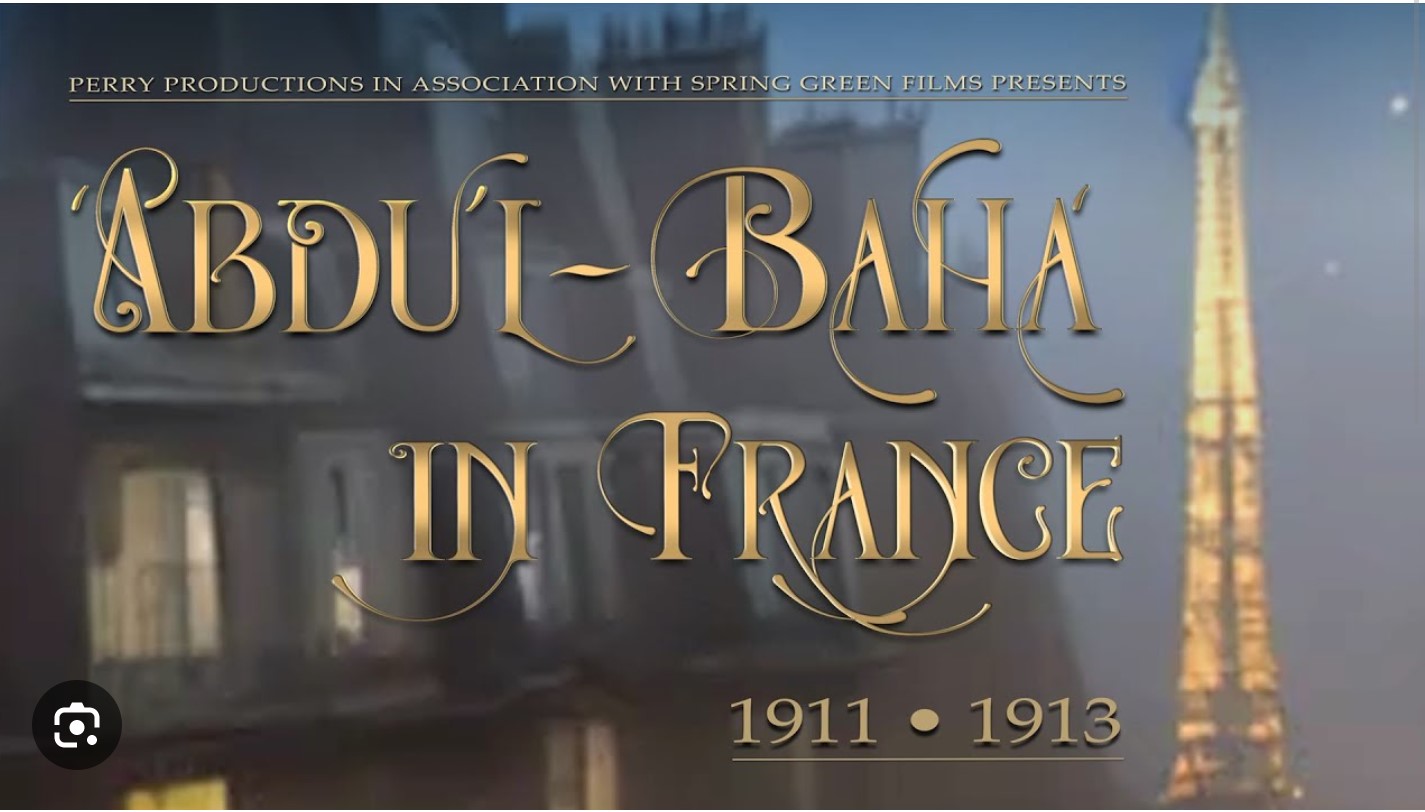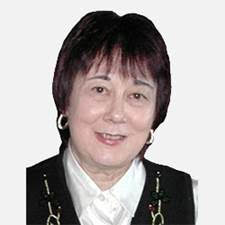
‘Abdu’l-Bahá in France (2022)
by Perry Productions
Review by NANCY LEE HARPER
The film ‘Abdu’l-Bahá in France stirs the senses and uplifts the soul. Created by Perry Productions in collaboration with Spring Green Films, the ninety-three-minute-long film is based on the most accurate research available and captures as well as holds the viewer’s attention by presenting the myriad of details gleaned from that research in a lively and engaging manner. Continuing the story of ‘Abdu’l-Bahá’s travels in the America, as presented in a previous Perry Productions’ film, Luminous Journey, ‘Abdu’l-Bahá in America — 1912 (2012), this new film invites the viewer to enter into the experience of some of those who came into the Master’s presence in those pre-war years and observe how His loving words and wise counsels influenced their lives.
The film’s recreation of the Master’s sojourn in France and England includes an account of His arrival in Europe at the port of Marseille; His visit to Thonon-les-Bains on the south shore of Lake Geneva (Lac Léman), where an extraordinary act of forgiveness took place; the month He spent in England; and His three visits to Paris.
Sometimes subtle and sometimes dramatic, the script, written by Anne Perry, draws on well-crafted interviews that bring to the forefront the living legacy now preserved by the scholarship of Jan Jasion, Alan Bonfils, Frédèric Autret, Parivash Amini, others, with Annie Joelle Jasion serving as translator. The film includes dramatic re-enactments of incidents involving well- known figures in the Bahá’í community of the day: Lady Blomfield; May Bolles; Juliet Thompson; Horace Holley; Stanwood Cobb; Hippolyte Dreyfus, the first Bahá’í of Jewish origin in France and one of the nineteen disciples of ‘Abdu’l-Bahá as appointed by the Guardian; Dreyfus’s wife Laura and her sister Natalie Barney; Phoebe Hearst; Sarah Farmer; Thomas Breakwell; Victor and Fanny Ponsonaille; Marion Jack; and others. The portrayal of Lady Blomfield by Beverley Evans Matthews is especially mesmerizing, and brought to life by striking period costuming, including one of the flamboyant hats often worn by aristocratic women of the day.
By means of excellent choices in casting and character voices, those who were fortunate to meet the Master in France are brought vividly to life, as are some of the prominent people who met ‘Abdu’l-Bahá during His travels: for example, Ezra Pound, Rainier Maria Rilke, Prof. E.G. Browne, Rev. Wilburforce, Mary Hanford Ford, Stanwood Cobb, Inyat Khan, and Mira Alfass. The words of ‘Abdu’l-Bahá Himself, some of which drawn from talks He gave in Paris, offer penetrating insights, and those words are as relevant today as they were when uttered, touching as they do on urgent contemporary social issues, such as racial unity, gender equality, care of the poor, the need for peace, and the importance of spirituality in all aspects of life.
Actual footage of ‘Abdu’l-Bahá’s visit is punctuated by the occasional animation, as created by Alex Mey. Other creative touches, such as the art nouveau motifs and computer-generated art used to create some of the backgrounds, do much to evoke the Paris of the day, enriching the film by reinforcing the historical context in which the events take place and adding beauty to the production. In fact, time and place are so vividly evoked that one can almost smell the freshly-baked croissants in the scene where, at an elegant high tea, philosopher Henri Bergson forcefully bangs his fist on the table as ‘Abdu’l-Bahá’s words strike within him a chord of truth.
Original music by Eric Harper helps to set the scene, at times underlining the action and, at other times, heightening emotion. Particularly powerful is the rapid-fire footage in the opening scene. Music by other artists — Mea Karvonen, Lucie Dubé, Lisa Haese Smith, Elika Mahoney and Malcolm Dedman — is fittingly woven into various scenes.
In documenting ‘Abdu’l-Bahá’s heroic and momentous travels in France with accuracy and bringing them to life through the richly evocative art of film, Perry Productions has left an enduring legacy. How challenging it must have been to portray the main character when He cannot be portrayed by an actor, as this kind of representation of the Central Figures of the Bahá’í Faith is not viewed as befitting of their stations. But the film handles this challenge and various other ones related to the accurate documentation of the Master’s travels in France with aesthetic sensitivity. This film is a treasure, not only for its recreation of the events of an important period of ‘Abdu’l-Bahá’s life and ministry, but for the opportunity it gives us to come into His presence in France.
‘Abdu’l-Bahá in France may be viewed here.

Nancy Lee Harper

